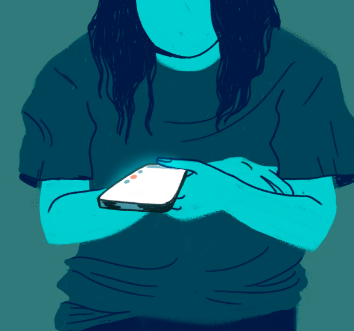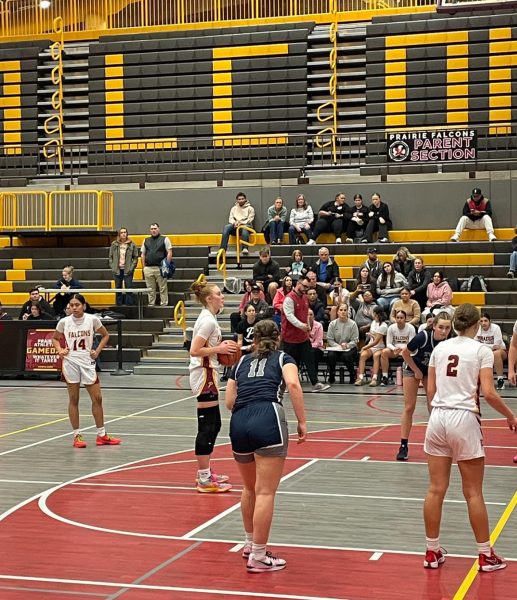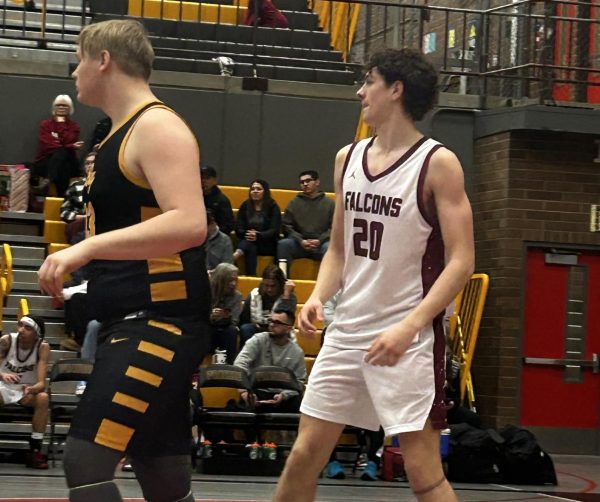Social Media vs. Mental Health
Social media is something people can’t seem to live without as it’s an extremely powerful tool people use in their everyday lives. Although powerful and a tool to use it has its downsides and negative effects on people’s mental health. The youth are especially affected, more specifically it has a big effect on teens’ mental health.
In this day in age, kids are more likely than not on social media, surveys show that ninety percent of teens ages 13-17 have had or used social media. According to a new research study about 45% of teens admit that they are online “Almost constantly.”
Around 70% of teens and young adults in the US alone have a social media addiction, “The overuse of social media can actually rewire a young child or teen’s brain to constantly seek out immediate gratification, leading to obsessive, compulsive and addictive behaviors,” says DeAngelis. “This is what can make mental health disorders such as anxiety, depression, ADHD, and body dysmorphia worse.”
Many teens relate to being “addicted” to social media. As it takes up a big chunk of time out of most teens’ days. “I believe social media is bad overall, because for me at least, I’m addicted to it.” Says Junior PHS student Lindsey Lovejoy. This a statement the majority of people can probably relate to in some way or could have related to at some point in their own lives. Many people can find themselves mindlessly scrolling through apps on their phones instead when they could be doing things like reading, writing, or running errands. “Social media takes time away from more enriching activities.” says senior Melody Brizuela.
This usage can even be linked to eating disorders and body dysmorphia as a huge part of social media is the unrealistic image we see online, people’s bodies, lifestyles, etc. There is an abundance of unrealistic images that appear online, leading to people comparing those “perfect” images they’re seeing to their own lives and selves. “I view social media to be negative because it creates unrealistic standards and lots of times creates nonreliable things on social media.” Says PHS senior, Annie Anderson.
With something as powerful as social media being such a huge part of the majority of teen’s lives it takes a toll on people. Multiple studies have found a strong link between heavy social media usage and an increased risk for depression, anxiety, loneliness, self-harm, and even suicidal thoughts.
Social media increases the risk of bullying or more commonly, cyberbullying. Having the ability to be negative or just mean towards others through a screen has given bullies a larger platform to do it; any form of bullying can really affect a person’s mental health and self-esteem. The Pew research center observed about half of the US youth population had faced online bullying in 2022. Cyberbullying online has been proven to overwhelm victims with feelings of anxiety and depression. A lot of times sadly it can fly under the radar simply because people don’t know how to get help.
In a study conducted by a Malaysian university, the majority of the first-year participants (85%) interviewed mentioned that cyberbullying affected their academic performance and grades. They also agreed that cyberbullying caused a devastating impact on students’ emotions and thus led to unimaginable psychological problems among the victims.
Similar to cyberbullying, social media also exposes teens to rumor spreading, this is something that happens in lots of aspects of life, for all ages but online it can spread much faster and have an even more dramatic effect when it is spread online. For teens having rumors true or not spread about themselves or maybe people they know and care about has the power to result in a lot of stressful and negative emotions for anyone affected by the rumors.
Social media, what can seem like limitless information, a thing that holds significant value in the majority of teens’ lives, what determines the impact of social media on teens’ mental health is the way we use it, The users have the power to determine what kind of impact social media can in fact have on them just in the ways they use it.“I manage social media in a healthy way by setting limits for myself, and really just limiting the time I spend on it.” stated Claire Smith, a junior at PHS.
When asked about how they use social media in a healthy way, this was the general answer all around from PHS students, it’s safe to say being mindful of the time you spend on social media and when teens take breaks and focus on the real world, practicing simple things like this can be beneficial to teens that use social media in their everyday lives.
Results from questions and a survey concluded that students at PHS are not excluded from these effects. 53 PHS students were surveyed with the question “Have you personally experienced negative effects of social media?” the results ended up being more than half responding “Yes” they had experienced negative effects of social media, it was 33 students to be exact. While 20 students said they had not experienced negative effects from social media usage.
It’s important that all social media users remember to be mindful of the amount of time spent online and what information they are exposing themselves to. Remember that what you see online is what people want you to see, don’t compare yourself to posed and edited images, and practice self-love.








